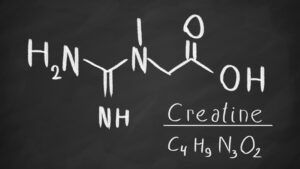
The nutrition supplement industry generates billions each year by selling promises of rapid muscle growth, effortless fat loss, and optimal health. These products are marketed as essential tools for achieving fitness success, making them an attractive solution for anyone seeking quicker results. However, beneath the glossy packaging and celebrity endorsements lies a world of misinformation, half-truths, and unregulated claims.
Many consumers believe supplements are the “magic bullet” for fitness progress, thanks to clever marketing strategies that play on insecurities and aspirations. Terms like “clinically proven” and “science-backed” are used liberally, often without substantial evidence. This creates an illusion of necessity, leading to billions of dollars spent annually on products that may offer minimal benefits.
This post takes a hard look at the myths and realities of the supplement industry. By uncovering its marketing tactics, debunking popular misconceptions, and highlighting evidence-based facts, we aim to equip you with the tools to make smarter, more informed choices. The goal isn’t to dismiss all supplements but to empower you to navigate this complex landscape with confidence and clarity.
The supplement industry thrives on aspirational marketing designed to tap into your fitness goals and insecurities. By leveraging celebrity endorsements, scientific jargon, and dramatic transformations, companies craft narratives that make their products seem indispensable. Words like “clinically proven” and “science-backed” are thrown around, often without clear evidence.
These tactics leave many feeling that supplements are a necessity rather than a convenience. The result? Billions of dollars spent annually on products that often provide marginal or no additional benefits. This can also perpetuate a cycle of dependency, where consumers continually seek “quick fixes” instead of addressing foundational fitness principles like proper diet and training. By recognizing these patterns, individuals can begin to prioritize sustainable habits over fleeting solutions, paving the way for long-term health and fitness success.
The nutrition supplement industry thrives on myths that perpetuate misinformation and confusion among consumers. These myths often serve as the backbone of supplement marketing, preying on common fitness aspirations and anxieties. Below, we dive into some of the most persistent misconceptions and separate fact from fiction to empower your decision-making.
The truth is, most people can achieve their fitness goals through a balanced diet and consistent training. Whole foods provide the essential nutrients your body needs for recovery, energy, and growth. Supplements are best used to fill specific nutritional gaps rather than replace food. For example, while a protein shake can be convenient post-workout, eating lean meats, eggs, or legumes often provides the same benefit without added fillers or artificial ingredients.
Consider the marketing behind pre-workout powders that promise ‘unmatched energy and focus.’ Many consumers believe these are indispensable, but the primary active ingredient is often caffeine—something easily sourced from coffee or tea. Similarly, meal replacement shakes claim to provide all the nutrients of a balanced meal, yet they often lack fiber and phytonutrients found in whole foods, making them a subpar substitute for real meals.
“Natural” is a marketing buzzword that often misleads consumers. For instance, yohimbine is a natural stimulant marketed for fat loss, but it can cause severe side effects like rapid heart rate, anxiety, and blood pressure spikes. Similarly, supplements containing “natural” diuretics are often advertised as safe for weight loss but can lead to dehydration and electrolyte imbalances if misused.
Another example is kava, promoted as a natural remedy for stress and anxiety. While effective in some cases, excessive use has been linked to liver damage. Additionally, products like “natural” testosterone boosters often contain unregulated herbal blends with unverified effects, posing potential risks without guaranteed benefits.
Over-supplementation can lead to serious health risks. Excessive vitamin D intake, for example, can cause toxicity, leading to nausea, kidney issues, and fatigue. A well-documented case in 2019 involved a man who experienced vitamin D toxicity after taking doses five times the recommended daily amount for several months.
Similarly, creatine, while effective, is often taken in unnecessary amounts based on the myth that “more is better.” This not only wastes money but can also strain the kidneys over time if hydration isn’t maintained. Pre-workout powders, another example, are frequently overused by individuals chasing energy boosts, which can lead to overstimulation, jitteriness, and in severe cases, cardiovascular issues.


Consult Experts: Speak to a registered dietitian or sports nutritionist for personalized advice.

Supplement | Claim | Scientific Backing | Verdict |
Protein Powder | Builds muscle, aids recovery | Proven effective for filling protein gaps | Useful when needed |
Creatine Monohydrate | Enhances strength/power | Strong research supports its benefits | Highly effective |
BCAAs | Improves recovery | Minimal benefits if protein intake is adequate | Might be unnecessary for some, especially novice lifters |
Fat Burners | Accelerates fat loss | Temporary stimulant effects; limited overall | Overhyped |
Multivitamins | Prevents nutrient gaps | Useful for deficiencies but not always needed | Situational |
The nutrition supplement industry is rife with exaggerated claims and misleading marketing. While some products like protein powder and creatine have solid scientific backing, many others offer little more than empty promises. For example, fat burners and “detox” teas often exploit the desire for quick results, promising miraculous transformations with minimal effort. By falling into these traps, consumers not only waste money but may also jeopardize their health through overuse or reliance on ineffective products.
To navigate this complex landscape, it’s crucial to prioritize whole foods as the cornerstone of your nutrition. Whole foods provide a balanced mix of macronutrients and micronutrients that supplements often fail to replicate. Supplements, when chosen wisely, can fill gaps, but they should always complement rather than replace foundational habits like consistent training and proper meal planning.
Consulting with a dietitian or sports nutrition expert is another essential step in making informed choices. These professionals can help identify specific deficiencies or needs, ensuring that any supplements you take are genuinely beneficial. Researching products thoroughly, checking for third-party testing, and staying skeptical of exaggerated claims will also empower you to make smarter decisions.
Ultimately, fitness success isn’t found in a bottle but in a commitment to sustainable practices. Supplements can enhance your journey, but the real results come from effort, consistency, and a well-rounded approach to health and fitness. By focusing on these principles, you can achieve your goals without falling prey to industry hype.
The key to success in fitness isn’t found in a bottle but in your consistency, effort, and informed choices. Supplements can complement your journey but should never overshadow the fundamentals of training and nutrition.
No, a diet rich in protein and consistent resistance training are sufficient for building muscle. Supplements like protein powder or creatine are helpful for convenience but not mandatory.
Not always. Natural supplements can still have side effects or interact with medications. Always research the safety of any supplement, regardless of its source.
Protein powder, creatine, and caffeine have strong evidence supporting their effectiveness. These are generally reliable choices for most fitness goals.
Fat burners offer minimal benefits and are not a substitute for a calorie-controlled diet and exercise. They may help slightly, but their effects are short-lived.
Look for third-party certifications like NSF or Informed Choice. Avoid products with proprietary blends or unclear ingredient lists.
coachjohanncscs.com only uses primary research and scholarly studies as references over secondary sites. Other references are primarily from reputable social media accounts of experts only in the fields of health, nutrition, sports science, physiology, psychology, and physical therapy.
Ratto, D. (2022). Nootropic and antioxidant metabolites of Hericium erinaceus enhanced healthy aging in a preclinical model and improved mood disorders in patients. University of Pavia Research Archive.
URL: https://iris.unipv.it/bitstream/11571/1452903/2/PhD%20Thesis%20Ratto%20Daniela.pdf
Maughan, R. J., Burke, L. M., & Dvorak, J. (2020). IOC consensus statement: dietary supplements and the high-performance athlete. British Journal of Sports Medicine, 54(14), 814-822.
DOI: 10.1136/bjsports-2019-101961
Nielsen, K. E. (2016). Health beneficial consumer products—status and trends. Trends in Food Science & Technology.
DOI: 10.1016/B978-0-08-100329-9.00002-5
Burke, L. M. (2019). Supplements for optimal sports performance. Current Sports Medicine Reports, 18(1), 15-22.
DOI: 10.1016/S2468-8673(19)30095-1